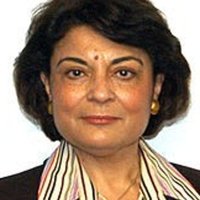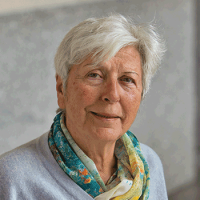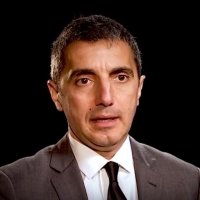Understanding the New Wave of Arab Protests: An Expert Panel
A new series of protests and demonstrations has erupted across the Middle East and North Africa over the past 9 months. In Iraq, Lebanon, Sudan, Algeria, Jordan, and Egypt, these protests were largely triggered by dire socio-economic conditions, corruption and a sense of economic and political disenfranchisement with outright calls for regime change in the case of Algeria, Sudan, and very recently in Lebanon.
Join our discussion with a panel of Wilson and regional experts to analyze these events and understand difference and similarities between the present wave of protests and those that erupted in 2011.
Selected Quotes
Moderator
David Ottaway, Middle East Fellow, Middle East Specialist and Former Washington Post Correspondent
“Now, the most interesting thing to me was there was no social media back in those days, 1985, and yet they were able to get the word out and organize themselves and they did just fine in getting rid of Nimeiry without Facebook, you name it. So, many of the tactics that were used back in 1985 in Khartoum I’m seeing now used again. So, just to give you a little perspective, you can have these uprisings very well organized without social media.”
Rend Al-Rahim, Co-founder and President of the Iraq Foundation
"What is driving this in Iraq, and what is driving it specifically in Shia areas? Because this is where the Iraqi protests are happening. First of all, all over Iraq there is in fact a chasm between the political parties, the ruling elite, people in parliament, people in government, and the rest of the population. There is no common ground, no common understanding, and no dialogue that takes place."
“Rather than seeing the Shia in the south seeing themselves come in to their own, their situation was dire, and it could be said that it was worsening. So suddenly, you have a Shia government full of promises for the Shia population, and a Shia population that has no jobs, no schooling, no economic development, no water, and so forth. And therefore, the disappointment of the Shia in this government is greater than the disappointment of the Sunnis in this government.”
“With the resentment against the Shia political parties there has come an associated resentment against the power that is seen as sponsor of these Shia political parties, which is Iran. And in southern Iraq, there has been a backlash against Iranian interests.”
Marina Ottaway, Middle East Fellow, Former Senior Research Associate and Head of the Middle East Program, Carnegie Endowment for International Peace
“I think it’s important to keep in mind that the protests of 2011 brought about a lot of change around the Arab world. To me, they really are a turning point…. But this change, which is very, very remarkable, is not the change the protesters wanted. In other words, the region changed very deeply, and the protesters lost out. Nowhere in the Arab world, the people who protested in 2011, anywhere close to the reins of power. Essentially everywhere, the old establishment came back to some extent.”
“What makes it so difficult for protesters to succeed is that … They are running into an immovable object because the leadership is not ready for any sort of transition. What happened in 2011 is that the protesters in many ways were naïve, and so were most people watching the protests because we all got rather carried away about these images of the young protestors rising up and so on. But, in fact, they were disorganized; they could not become a force for change able to push against the unmovable force of these regimes.”
“Certainly, there is no clear path here to success, but what I would argue is that there is certainly a learning curve on the part of the protest movement; that there are certain differences—there is less of an expectation that everything is going to be simple. In no country have I seen the protesters. when the military flexes its muscles, coming out as the protesters did Egypt saying, ‘The army and the people are one.’ I think they know better than believing that is the case.”
Hussain Abdul-Hussain, Washington Bureau Chief, Al Rai Newspaper
“Hezbollah has been trying to channel popular anger against the oligarchs only to pretend as if the problem is only with corruption. The thing is, even if the country manages to eradicate corruption altogether, Lebanon will still face a big problem of attracting foreign investors and tourists because no investors in their right mind would want to take their dollars into a country where war might flare up any minute.”
“Stable autocracies are better than unstable democracies, particularly after the Iraq War. After the Iraq War and the Iraq War hangover, we reconnected with autocrats and we thought, “Okay, maybe they’re autocrats and all, but maybe they can just keep things stable.” Well, this is falling apart as we have seen in Syria, now in Lebanon, Iraq is a great example, other countries in North Africa. Autocrats can provide short-term stability, but with a growing population and with increasing poverty, autocracy is unstable, and we have to rethink the paradigm we base ourselves on for the past decade.”
“With all due respect to Professor Francis Fukuyama, identity politics is strong only when people can afford it. If you guys have read his latest publication, he argued that he cannot understand how people are abandoning their interest, their economic interest, and selecting identity politics over it. Well, this is not the case in Lebanon, this is not the case in Iraq; in Lebanon we have seen people who have been fighting for centuries just abandon their leaders. Now, what the oligarchs do is that they need to use identity politics, they need to be racist against Syrian refugees and Palestinian refugees, and then they turn Christians against the Jews, and they turn the Shia against the Sunni. And this is in their interest because, as long as everyone is divided, they can maintain the oligarchy.”
“I’m amazed, as someone who grew up in Lebanon, just to see how these Christians, Jews, people who have been enemies for such a long time, they’re in the street together fighting side-by-side just asking for a better future.”
“We have to rethink how we look at the region. And now, over the past decade, we have observed democracy shrink around the globe, and thanks to China and of course Russia, there has been this trend that maybe non-democracies are the way to go. I think we have to rethink this; Arab countries need stability, need democracy, liberal democracy, should get over the Iraq War hangover, and they should start rethinking or reinventing the idea of spreading democracy. Not through war, just spreading it the old way that we know—development, aid, training, whatever come to mind.”
Photo credit: shutterstock.com
Introduction

Moderator

Former Washington Post Middle East Correspondent
Panelists


Former Senior Research Associate and Head of the Middle East Program, Carnegie Endowment for International Peace

Hosted By

Middle East Program
The Wilson Center’s Middle East Program serves as a crucial resource for the policymaking community and beyond, providing analyses and research that helps inform US foreign policymaking, stimulates public debate, and expands knowledge about issues in the wider Middle East and North Africa (MENA) region. Read more


